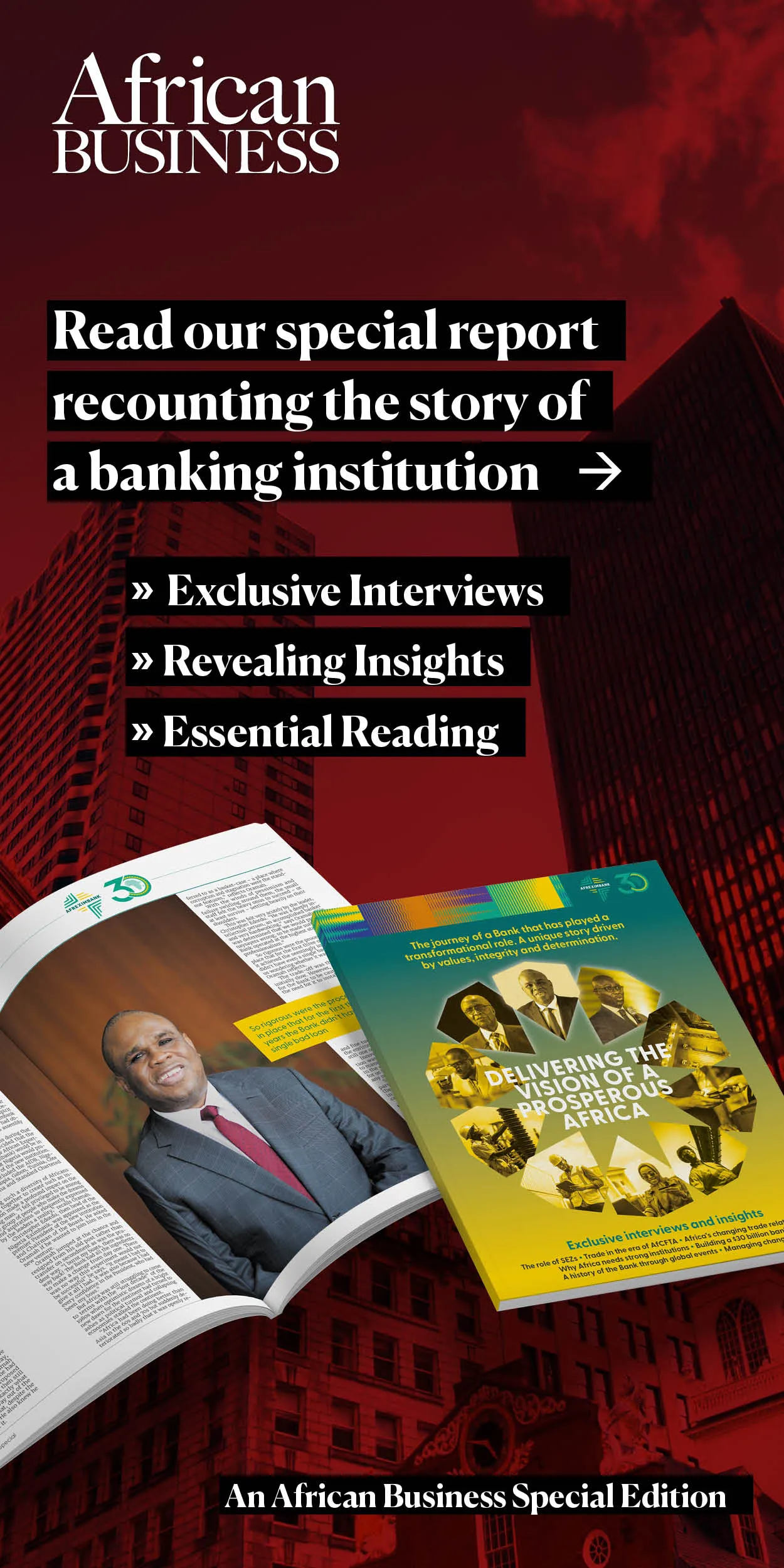This article was produced with the support of Afreximbank
His Excellency Ambassador, Wamkele Mene, the Secretary General of the African Continental Free Trade Area (AfCFTA) Secretariat has expressed the view that the tariffs imposed by Donald Trump and the end of the Africa Growth Opportunity Act (AGOA) provide an opportunity for Africa to pivot from dependence and external support to self-sufficiency.
“The point I make is that Donald Trump is doing what Donald Trump is doing for the U.S. We have to do what we have to do for our continent,” he told his audience during a conversation with Godfrey Mutizwa, Editor of CNBC Africa at the ongoing Intra African Trade Fair (IATF2025) in Algiers, Algeria
Continuing he said “in the short-term, we’re going to suffer but in the medium to long-term, we have the capability to pivot by leveraging on the AfCFTA, leveraging on trade finance, on all of the tools that our development finance institutions are able to mobilize and put at our disposal, I do not see why we cannot succeed in three to four years’ time.”
How will this pivot happen? Wamkele Mene believes the foundation has already been laid and the building blocks in place.
“That means that we will have to deploy tools such as the adjustment fund, trade finance that is affordable, cost effective, and accessible, the transit guarantee scheme, a custom system that is effective and user-friendly, medium to long-term for us to boost intra-Africa trade. I believe we’ve got to focus on these key objectives.”
Fielding further questions from his interlocutor, the Secretary General acknowledged that there are challenges and constraints on the path to achieving the pivot.
“I think there are challenges that are within our control as the AfCFTA and then there are challenges outside of our control but that have an impact on intra-Africa trade. The most unique challenges and constraints which are within our control is the need for us to accelerate and enhance custom systems interoperability, custom systems harmonization. This is really the critical part of what we’re trying to do.”
Expanding on his reference to national customs’ services helping to ensure that the movement of services and goods is cost-effective and accessible he emphasized that “we have a shared vision that customs in Africa must not be about just revenue collection, but must be about trade facilitation. And this is a very important mind shift that that we have to make. The second challenge which is outside of our control is the cost of transport and logistics.”
This is challenge is critical because Africa currently faces an infrastructure gap which estimates put at between $130 bn to $175 bn per annum. The effect of this infrastructure gap impacts trade in different ways.
According to Wamkele Mene, “when goods moved for the first time from Kenya to Ghana. It took three months for those goods to arrive in Ghana, largely because of the cost of transport and logistics. So we have to rely and leverage on our development finance institutions so that we find ways of reducing the cost of transport and logistics. The infrastructure deficit of $150 billion is a conservative estimate.”
The Secretary General however admitted that action is being taken to bridge this huge gap and ensure that the continent’s infrastructure gap is closed.
“I must commend the just outgoing president, our good brother, Akinwumi Adesina. In the 10 years he was there at the Africa Development Bank (AFDB), $55 billion of investment was made in trade supporting infrastructure in Africa. Since its establishment, Afreximbank has also committed close to $20 billion, if not more, in trade supporting infrastructure. But we’ve got to do more. We have to do more. “
Doing more will take the form of expanding the offerings available for tackling the challenge one of which he said is bringing in “private sector capital into infrastructure, whether it is private equity, sovereign loan funds. The last point I would make is the private sector is the driver of intra-Africa trade.”
At the end of the day how will Wamkele Mene measure a successful pivot?
“To me, really the measure of success shall not necessarily be trade flows as an end in itself. The measure of success is going to be how many SMEs can say that they actually are part of Africa’s intra-Africa trade. How many informal traders and how many young people, young entrepreneurs, that’s the measure of success. Trade numbers, yes, that is good, but the real measure of success is the extent to which we have an inclusive trade agreement that all countries, big economies, small economies, big corporations, micro SMEs, all of them can benefit from this market.”

 Sign in with Google
Sign in with Google 
